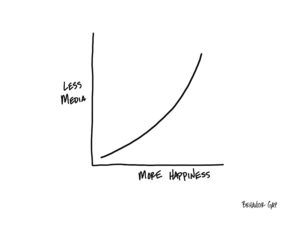Details Are Part of Our Difference
Embracing the Evidence at Anheuser-Busch – Mid 1980s
529 Best Practices
David Booth on How to Choose an Advisor
The One Minute Audio Clip You Need to Hear
Ways to Help Protect your Financial Data in 2023

To kick the year off on the right foot, we wanted to share some of the most effective measures you can take this year to protect your financial data. Some of our list will be reminders you’ve heard before, and others will be new ideas. Here are our suggestions as you tighten up your personal protection plan for 2023:
- Enable Two-Factor Authentication: We know it can be a pain, but two-factor authentication adds an extra layer of security by requiring a second form of verification (e.g., a code sent to your phone) and your password. It’s worth it.
- Use anti-virus and anti-malware software: Make sure that your device has anti-virus and anti-malware software installed and that it is kept up to date.
- Don’t use public Wi-Fi: Public Wi-Fi networks are often unsecured, making them easy targets for hackers. Avoid using public Wi-Fi networks for sensitive financial transactions. An alternative to using public Wi-Fi is using your cellphone hotspot for a secure connection.
- Be wary of phish!: Scammers often use phishing emails and text messages to trick people into giving away their personal information. Be wary of unsolicited messages, and never click on links or enter personal information into a website unless you are sure it is legitimate. Treat email as guilty until proven innocent.
- Secure your device: Use a 6-digit passcode or biometric (fingerprint) to lock your mobile device, don’t share your device with anyone, and only install apps from the official app store.
- Use a password manager: A password manager can help you create and manage strong, unique passwords for all your accounts, making it easier to protect your personal information.
- Use strong, unique passwords: Use a strong, unique password for all your financial accounts and change them regularly. Avoid using easily guessable information such as your name, kids’ birthdate, or pet names.
- Avoid communicating sensitive information over email: Share sensitive information like logins, account numbers, and birthdates only in secure portals or using safe links.
By taking these steps, you can help keep yourself protected while online. If you are curious about how we protect your information here at Hill Investment Group, call me at 314-448-4023.
What We’re Watching – Madoff Series
Bernard Madoff committed the largest financial scam in history. This, you know. You may not know the stunning details of how he did it and managed to get away with it for so many years. That’s why we recommend watching the new four-part docuseries on Netflix. It includes interviews with victims, investigators, and scenes from Madoff’s depositions.
Fifteen years since his 65 billion dollar Ponzi scheme unraveled, there have been several depictions of Madoff, but “Madoff: The Monster of Wall Street” offers new insights worthy of your time.
Try a Media Fast

What if, for one whole week, you did a media fast?
You know… like, don’t consume any media at all. No screens, no devices, don’t even pick up a newspaper.
No. Media. Period.
Is one week too long? Then scratch that… make it three days. THREE DAYS. That’s just a long weekend. You can do it, I promise.
Give it a shot. And when you do, pay close attention to your emotional state. How does it make you feel? Happy? Sad? Energized? Exhausted? All of the above? None? Something else? I don’t know how it will make you feel… though I have my suspicions.
When I’ve done media fasts, I find myself feeling calm. Really calm. And to me, that feels good. Really good.
Which makes me wonder… if taking a media fast makes me feel so good, why do I ever go back to it at all?
Warning: You may find yourself asking that same question…

